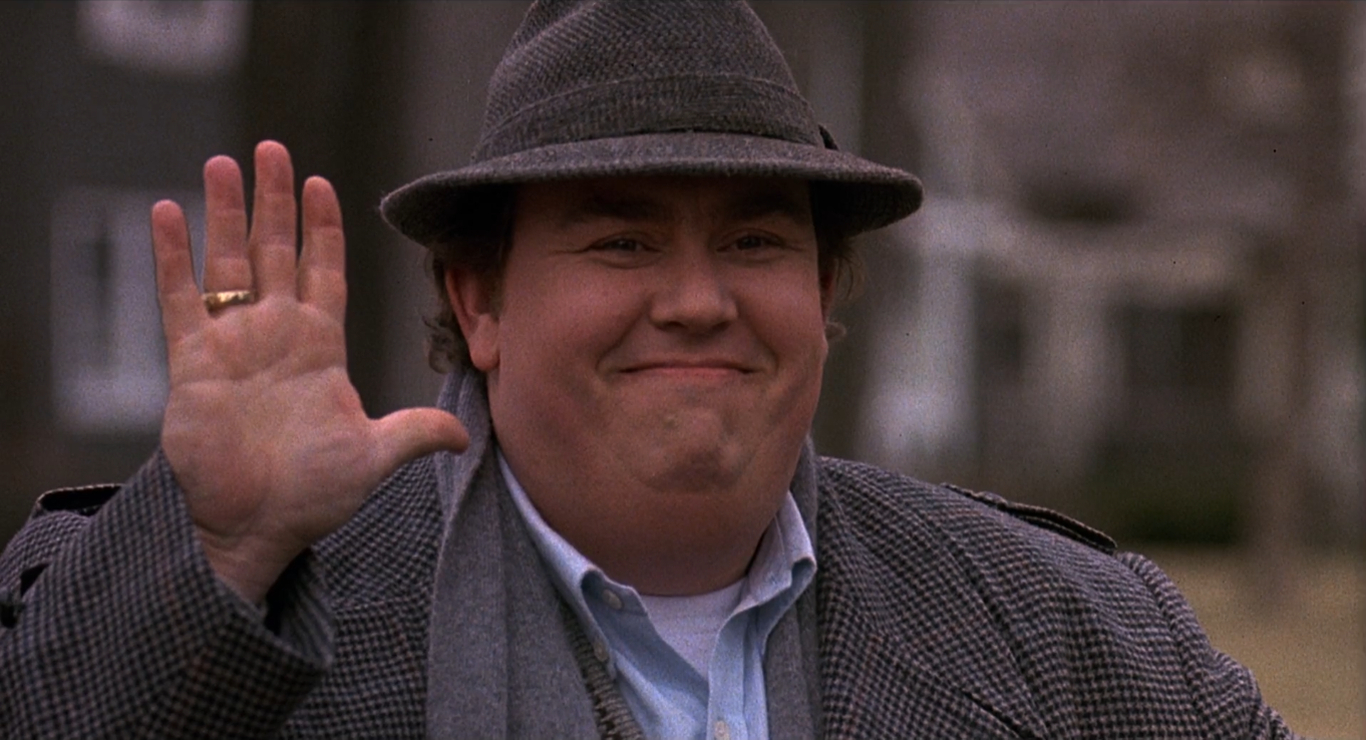Uncle Buck

Uncle Buck, a 1989 comedy film starring John Candy, portrays a charming but irresponsible bachelor who reluctantly takes on the responsibility of caring for his niece and nephews while their parents are away. This film explores the unconventional methods of parenting and the complex dynamics within families.
Uncle Buck’s Personality Traits
Uncle Buck’s personality is a complex blend of endearing flaws and genuine warmth. He is a free spirit, often acting impulsively and defying societal norms. His humor is often crude and irreverent, but he possesses a deep affection for his family, especially his niece and nephews. His unconventional methods of parenting, while initially chaotic, ultimately lead to positive growth and understanding for the children.
- Strengths: Uncle Buck’s strengths lie in his genuine love for his family, his ability to connect with children on their level, and his unwavering loyalty. He possesses a natural ability to see the best in people, even when they are at their worst. He also has a knack for making people laugh and helping them to relax and enjoy themselves.
- Weaknesses: Uncle Buck’s weaknesses stem from his irresponsible behavior, his tendency to act without thinking, and his lack of conventional parenting skills. His impulsive nature can lead to trouble, and his lack of discipline can create chaos in his surroundings. However, despite these flaws, his heart is always in the right place.
Uncle Buck’s Impact on the Children
Uncle Buck’s unconventional parenting methods have a profound impact on the lives of his niece and nephews. He teaches them valuable lessons about life, love, and responsibility, albeit in a chaotic and often unorthodox way. His influence on the children can be seen in their newfound confidence, independence, and ability to embrace their individuality.
- Breaking Down Barriers: Uncle Buck’s ability to connect with children on their level helps to break down barriers and create a sense of trust and intimacy. He challenges their preconceived notions and encourages them to think for themselves. This fosters their creativity and encourages them to embrace their unique personalities.
- Teaching Life Lessons: Uncle Buck teaches valuable life lessons through his own experiences and observations. He shows them the importance of family, friendship, and resilience. His unconventional methods help them to develop a sense of humor, adaptability, and the ability to cope with life’s challenges.
- Promoting Independence: Uncle Buck encourages independence by giving the children responsibility and allowing them to make their own choices. He trusts them to make mistakes and learn from them, fostering their growth and self-reliance.
Uncle Buck’s Relationship with His Brother
Uncle Buck’s relationship with his brother, Bob, is a significant aspect of the film. Their contrasting parenting styles highlight the different approaches to raising children. Bob is a strict and traditional father, while Uncle Buck is more relaxed and unconventional. Their differing parenting styles create tension and conflict, but ultimately, they both demonstrate their love and concern for their children.
- Contrasting Styles: Bob’s strict and disciplined approach to parenting is in stark contrast to Uncle Buck’s more relaxed and unconventional methods. Bob believes in rules and structure, while Uncle Buck believes in freedom and experience. This clash of styles creates tension and conflict between the brothers.
- Mutual Respect: Despite their differences, Bob and Uncle Buck ultimately respect each other’s parenting styles and their love for their children. They recognize that there is no one right way to raise children and that each approach has its own merits. Their relationship is a testament to the fact that family can come in many forms.
Uncle Buck Compared to Other Iconic Film Uncles
Uncle Buck’s character shares similarities and differences with other iconic film uncles, such as Uncle Phil from “The Fresh Prince of Bel-Air.” While both characters are strong and supportive figures in their respective families, their personalities and parenting styles differ significantly.
- Uncle Phil: Uncle Phil is a stern but loving father figure who provides guidance and discipline for Will Smith’s character. He represents a traditional and authoritative approach to parenting, emphasizing rules and respect. His relationship with Will is marked by a balance of love, discipline, and mentorship.
- Uncle Buck: Uncle Buck, in contrast, is a more chaotic and unconventional figure who brings a sense of fun and freedom to the children’s lives. He challenges their preconceived notions and encourages them to embrace their individuality. His relationship with his niece and nephews is characterized by a sense of playfulness, affection, and shared experiences.
Thematic Exploration in “Uncle Buck”

“Uncle Buck,” a heartwarming comedy-drama released in 1989, explores a range of universal themes that resonate with audiences of all ages. The film delves into the complexities of family dynamics, societal expectations, and the importance of individuality, using humor as a vehicle to address these serious topics.
Family Dynamics and Responsibility
The film centers on the dysfunctional but lovable Templeton family. The central conflict arises when Buck, a carefree and irresponsible bachelor, is tasked with caring for his teenage niece and nephews while their parents are away. This unexpected responsibility forces Buck to confront his own shortcomings and learn the value of family.
- Sibling Rivalry: The film portrays the classic sibling rivalry between the three Templeton children, with each child vying for attention and struggling to find their place within the family. Buck’s arrival initially exacerbates this rivalry, as he encourages their rebellious nature and challenges their established routines. However, Buck’s unconventional methods ultimately help them bond and overcome their differences.
- Generational Differences: The film highlights the generational gap between Buck and the children, showcasing differing values, perspectives, and communication styles. Buck’s carefree attitude and disregard for rules clash with the children’s desire for structure and stability. Through their interactions, the film explores the importance of understanding and bridging these generational divides.
- The Importance of Family: Despite their flaws and differences, the Templeton family ultimately demonstrates the importance of love and support. Buck’s presence challenges their established routines and forces them to confront their own issues, but it also reminds them of the unbreakable bonds of family. The film emphasizes that family is not about perfection but about acceptance, understanding, and unconditional love.
Societal Expectations and the Pressure to Conform
The film also explores the pressure to conform to societal expectations, particularly in the context of family and career. Buck’s unconventional lifestyle and career choices clash with the expectations of his family and society. He is viewed as a failure for not following the traditional path of marriage and a stable career.
- Challenging Traditional Norms: Buck represents a challenge to traditional societal norms, demonstrating that happiness and fulfillment can be found outside of the conventional paths. He embraces his individuality and chooses to live life on his own terms, despite facing judgment and criticism from others. His journey encourages viewers to question societal expectations and to pursue their own paths to happiness.
- The Importance of Individuality: The film emphasizes the importance of embracing individuality and rejecting the pressure to conform. Buck’s unique personality and unconventional lifestyle ultimately lead him to find happiness and fulfillment, inspiring the children to embrace their own individuality and to challenge the expectations placed upon them.
Humor as Social Commentary, Uncle buck
“Uncle Buck” uses humor to address serious themes and provide social commentary. The film’s comedic moments often highlight the absurdity of societal expectations and the challenges of navigating family dynamics.
- Satire of Family Stereotypes: The film satirizes traditional family stereotypes, using humor to expose the flaws and complexities of family life. Buck’s chaotic presence challenges the idealized image of the perfect family, revealing the underlying tensions and struggles that often exist beneath the surface. This comedic approach allows the film to explore these issues in a lighthearted and relatable way.
- Social Commentary: The film also uses humor to offer social commentary on issues such as class, gender roles, and the pressure to succeed. Buck’s struggles with societal expectations and his unconventional lifestyle provide a humorous lens through which to examine these issues, prompting viewers to reflect on their own beliefs and values.
Cultural Significance of “Uncle Buck”

“Uncle Buck,” a comedic masterpiece starring John Candy, resonated deeply with audiences in the late 1980s, solidifying its place as a cultural touchstone. Its enduring popularity and lasting influence on subsequent films and television shows highlight its significance in the landscape of American cinema. The film’s success stemmed from its relatable characters, heartwarming story, and clever humor that captured the essence of family dynamics and the challenges of navigating a changing world.
The Film’s Reflection of the Late 1980s
“Uncle Buck” offers a window into the social and cultural landscape of the late 1980s. The film’s depiction of a working-class family navigating the anxieties and aspirations of a changing America reflects the era’s economic and social shifts. The film’s portrayal of family life, particularly the dynamics between parents and children, resonates with the anxieties and aspirations of a generation grappling with evolving family structures and changing social norms. The film’s use of music, fashion, and technology also reflects the cultural trends of the late 1980s.
The Film’s Enduring Popularity
“Uncle Buck” has remained a popular film for several reasons. Its relatable characters and heartwarming story continue to resonate with audiences, while its clever humor and memorable moments have made it a beloved classic. The film’s enduring popularity is also attributed to John Candy’s iconic performance as Uncle Buck, a character who embodies the lovable but flawed uncle figure. His charisma, comedic timing, and ability to portray both vulnerability and strength made him a perfect fit for the role.
Comparison to Other Popular Comedies of the Era
“Uncle Buck” stands out among other popular comedies of the late 1980s for its blend of humor, heart, and family-friendly appeal. While other comedies of the era often relied on slapstick humor or crude jokes, “Uncle Buck” offered a more nuanced and heartwarming approach. The film’s focus on family dynamics and the importance of love and support set it apart from other comedies of the era.
| Film | Cultural Impact | Key Themes |
|---|---|---|
| “Uncle Buck” | A beloved classic that captures the essence of family dynamics and the challenges of navigating a changing world. | Family, love, responsibility, and the importance of finding your place in the world. |
| “Coming to America” | A cultural phenomenon that celebrates diversity and the American Dream. | Identity, culture, and the pursuit of happiness. |
| “Ghostbusters” | A groundbreaking comedy that blended humor with special effects. | Fear, the supernatural, and the power of friendship. |
You know that feeling when you’re just dying to laugh? Well, if you’re looking for a movie that will have you rolling on the floor, then you need to check out “Uncle Buck.” This heartwarming comedy classic is full of hilarious moments and relatable characters, making it a perfect choice for a night in with friends or family.
If you’re ready for a good dose of laughter, head over to uncle buck and get ready to enjoy a truly unforgettable cinematic experience.
Uncle Buck, the hilarious and lovable character played by John Candy, was a true icon of comedy. He might not have been as polished as Kevin James, whose net worth is estimated to be quite impressive according to this article , but his heart of gold and chaotic charm won over audiences everywhere.
Uncle Buck’s legacy continues to inspire laughter and remind us that sometimes, a little bit of chaos is exactly what we need.
